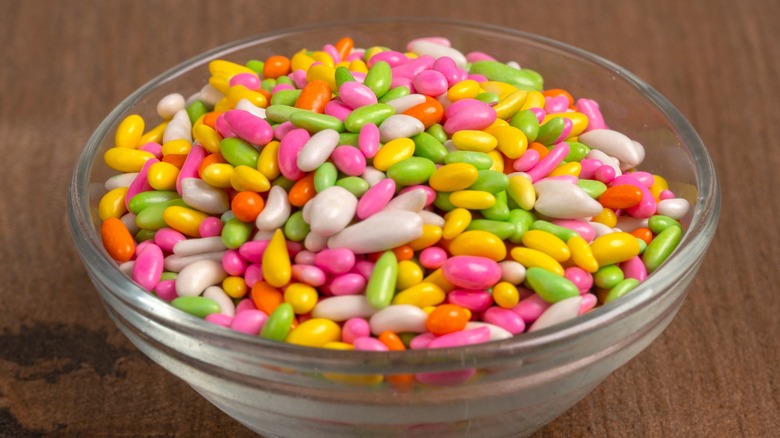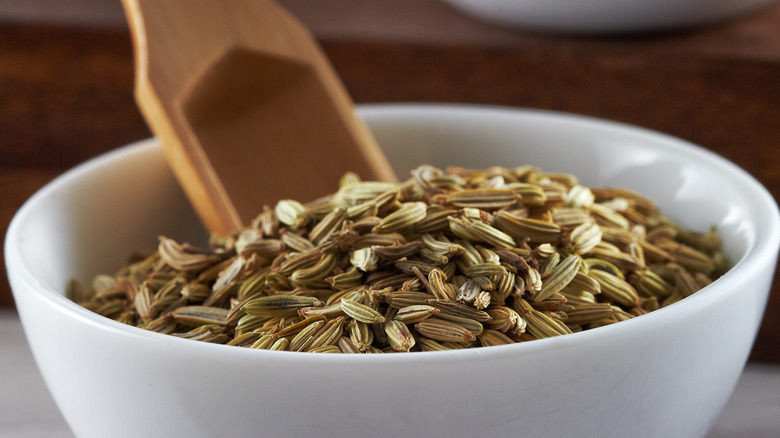When To Eat The Candy-Coated Fennel Seeds At An Indian Restaurant
Anyone who's been to an Indian restaurant has seen those small bowls of brightly-colored, sugar-coated fennel seeds usually displayed at the host station. If you're into free food, sweet things, and anise flavors, you've no doubt popped some in your mouth, possibly while waiting for a table. Don't do that. To clarify, we're not saying you shouldn't eat these little guys at all, just after the meal. Think of them as what the French call a mignardise — a small, sweet, post-meal course. But beyond being a delightful post-prandial snack, candied fennel's intended uses go way beyond that: These are powerful breath fresheners and digestive aids. Enjoy them on your way out.
We've seen it referred to as "funfetti fennel," but the Hindi term for this digestive is saunf mithai. Candied fennel seeds are a form of mukhwas, a catch-all term for a variety of after-meal breath fresheners. (Mukhavasa is a compound Sanskrit word meaning basically "mouth perfume.") Mukhwas can be made from various seeds and nuts, including anise, sesame, and coconut. But let's talk specifically about its most common form, saunf mithai. What's so great about fennel seeds?
Fennel, the anise-flavored wonder drug
In the ancient medicinal practice of Ayurveda, fennel is a valued digestive aid. It is thought to be both cooling and sweet and therefore ideal for supporting the digestion fire, agni. Fennel is also considered tridoshic, which means it offers good balance, particularly of vatta and kapha doshas, making fennel beneficial to all types of people. Ayurvedic expert Dr Dixa Bhavsar Savaliya states that this all-star digestive is also valuable in treating heart health, menstrual pain, breast milk production, and lung congestion.
Western medicine also understands the benefits of fennel. According to Healthline, fennel fights gas and constipation, and is also an anti-inflammatory, antibacterial, and antimicrobial agent. It's the one-two punch of fennel's antimicrobial properties combined with its encouragement of saliva production that freshens the breath — saliva is also antimicrobial. So, the next time you see that little bowl of sugar-coated goodies on your way out of an Indian restaurant, take a pinch. They'll do you a world of good.

